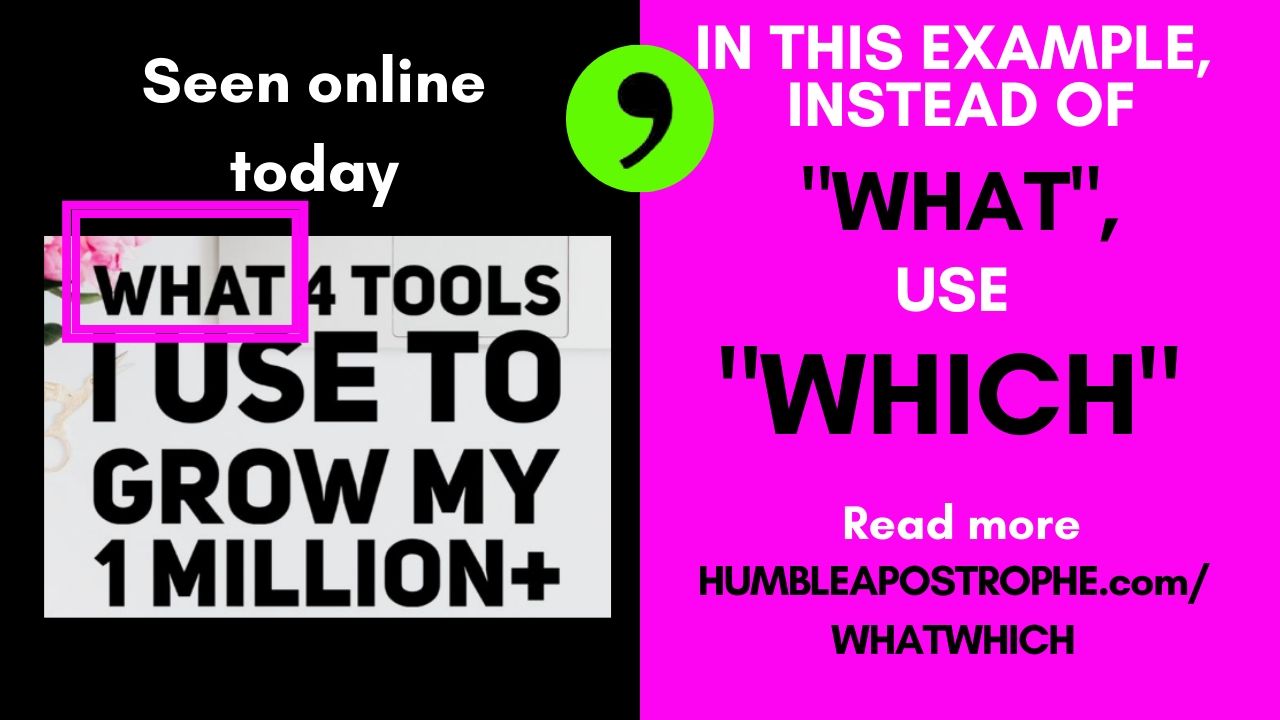Have you been wondering, “What is the difference between what and which?”
Today’s question comes from Mario Hernandez in the UK, and this is one of my favourite questions.
I see these two words used on images online, and because I learned English in an Australian school, we use the UK English. If you didn’t learn British English, you may not agree with this post – but that’s OK, stick with what you learned and you’ll be all set.
This video clearly explains the difference between these two words and when to use them, and below that you can read the explanation too.
Transcript
Hi guys. Dan for BBC Learning English here with this week’s Learner Question. Find out what it is after this.
Okay, this week’s Learner Question comes from Christina Gutierrez and she says, “First of all, congratulations on your splendid programs at BBC learning English.”
Thank you so much.
“They are both entertaining and useful.”
Good. That’s what we want them to be.
“I’d like to know what’s the exact difference in usage between what and which at the beginning of direct questions.”
Well, Christina, as you command, so we obey.
Now both are often possible with very little difference.
For example, “What or which is your favourite food?”, or “Which or what is the best program on TV at the moment?”
When we feel we have a limited number of choices, we prefer which, so with a menu, “Which dessert shall we have?”, or when looking at a multiple choice test, “Which one is the answer?”
On the other hand, what is used when we feel we have an unlimited number of choices.
Examples using what and which
So for example, “What should we have for dinner?”, or “What’s the answer to this question?”
Both can be used as determined as indirect question.
When talking about people or things, they’re always followed by nouns
So when looking at a line of cars, I might say, “Which car is yours?”
But in general I could ask, “What car do you drive?”
In talking about people we can use “which” to ask about identity and “what” to ask about job.
For example, “There’s a group of people over there, which is your friend?”, or “Tim’s a lawyer. What’s James?”
I hope that answers your question Christina, thank you very much for contacting us.
Anybody else out there has a question about English they’d like answered? You can email us on learning.English@bbc.co.UK
Please remember to include:
- learners questions in the subject line
- and your name
- and your country.
You can also go to our website, BBCLearningEnglish.com
I’ve been Dan and I’ll see you next time on this question.
Did the answer to “What is the difference between what and which?” make sense for you?
I’d love to hear your thoughts on this.
A recent example of Which and What spotted online

Why should this example use “which” instead of “what”?
When there is a limited number of choices (“4 tools”), the preferred word is “which”.
Feel free to chat on:
- and by sending me an email >>
Cheerio for now,

Teena!
Teena Hughes


